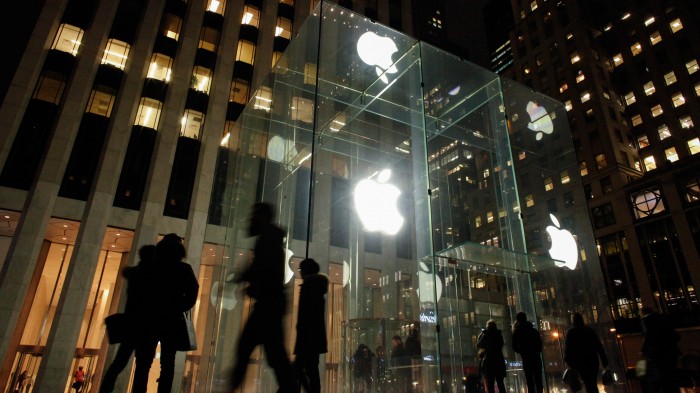Apple’s Stand Against the FBI Gets Weak Backing from Other Tech Giants
Update, February 19, 2016: Twitter and Facebook each issued statements supporting Apple CEO Tim Cook's stance against the FBI.
Apple CEO Tim Cook made a strong stand against the FBI Tuesday, refusing to help the agency unlock an iPhone that belonged to one of two shooters who killed 14 people in San Bernardino last year.
Now some of Apple’s peers in the tech industry have spoken out in support of that stance—but with a collective mumble, rather than a roar.
Technical and legal experts on security and privacy have loudly backed Cook’s claim that helping the FBI unlock this particular phone would set “a dangerous precedent” that could lead to the government demanding backdoors in all kinds of products.
But when Google’s CEO Sundar Pichai tweeted on the matter nearly 24 hours after Apple’s statement was released, he used softer language. Helping the FBI with this case “could be a troubling precedent,” he said.
A statement from the industry coalition Reform Government Surveillance, set up in the wake of Edward Snowden’s leaks about the National Security Agency’s surveillance programs, avoided picking a side altogether. Members include Microsoft, Facebook, Apple, Google, and Twitter.

“Technology companies should not be required to build in backdoors to the technologies that keep their users’ information secure,” the group said in a short statement. It didn’t say whether Apple was right to resist the FBI, or offer any opinion on the crucial question of whether this case does or might set a precedent that could lead to further, more troubling, government demands.
The strongest backing for Cook from any large tech company came from Jan Koum, who founded and still runs the WhatsApp messaging service now owned by Facebook. Koum, who is on Facebook’s board and has pledged to make it impossible for his company to read WhatsApp messages, said he “couldn’t agree more” with Cook’s letter. “We must not allow this dangerous precedent to be set. Today our freedom and our liberty is at stake,” he wrote.
Facebook’s CEO Mark Zuckerberg has remained silent, though. So have leaders at Microsoft.
Other tech giants still have time to come to Apple’s aid. Such support would be most meaningful when legal proceedings begin over Apple’s refusal to go along with the court order requiring it to help the FBI.
Big tech companies have teamed up to resist the government in such cases before. Apple, Microsoft, Amazon, and others stood together last year when Microsoft fought the U.S. government’s claim that it could demand access to data held outside America’s borders.
(Read more: Facebook, Reform Government Surveillance, BBC, “Apple Vows to Fight the Feds in the Battle Over Encryption”)
Keep Reading
Most Popular
Large language models can do jaw-dropping things. But nobody knows exactly why.
And that's a problem. Figuring it out is one of the biggest scientific puzzles of our time and a crucial step towards controlling more powerful future models.
The problem with plug-in hybrids? Their drivers.
Plug-in hybrids are often sold as a transition to EVs, but new data from Europe shows we’re still underestimating the emissions they produce.
Google DeepMind’s new generative model makes Super Mario–like games from scratch
Genie learns how to control games by watching hours and hours of video. It could help train next-gen robots too.
How scientists traced a mysterious covid case back to six toilets
When wastewater surveillance turns into a hunt for a single infected individual, the ethics get tricky.
Stay connected
Get the latest updates from
MIT Technology Review
Discover special offers, top stories, upcoming events, and more.